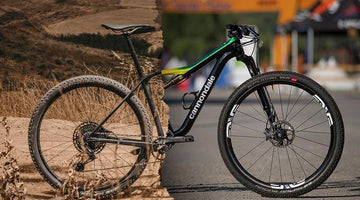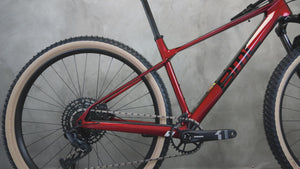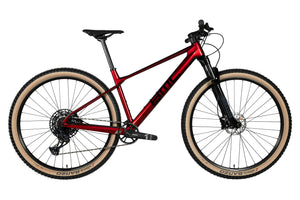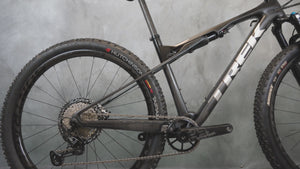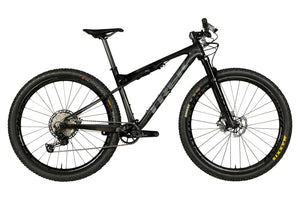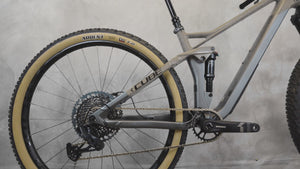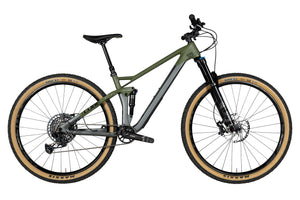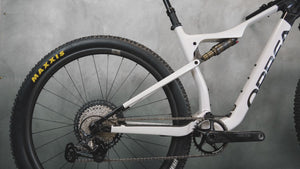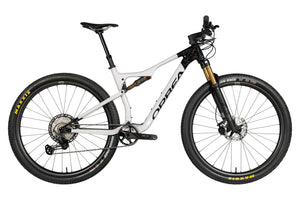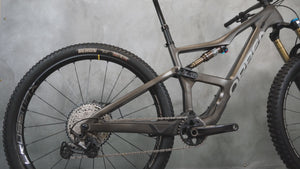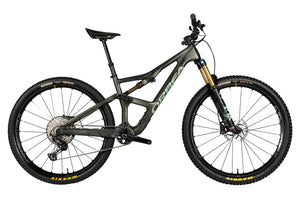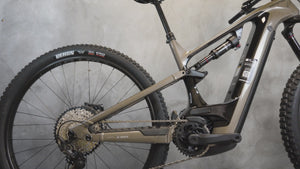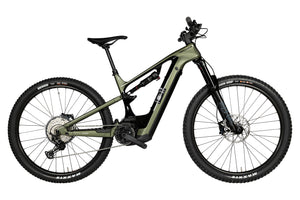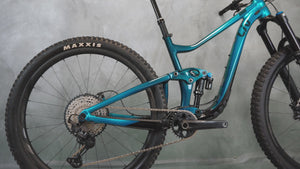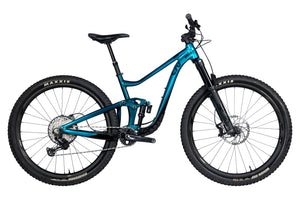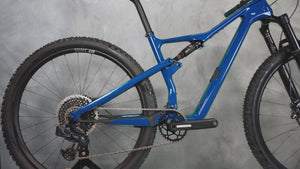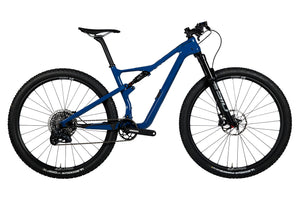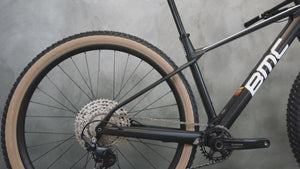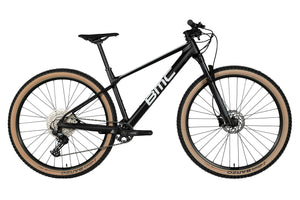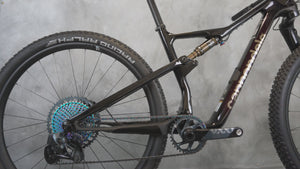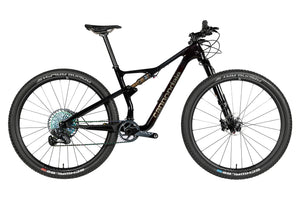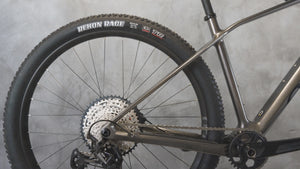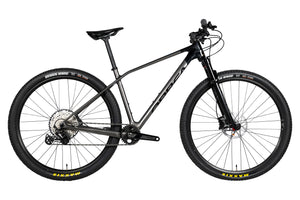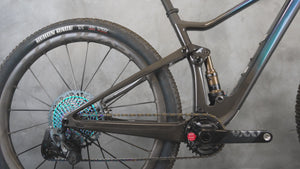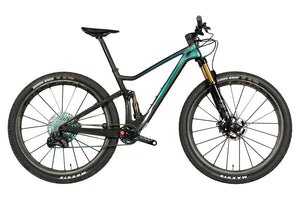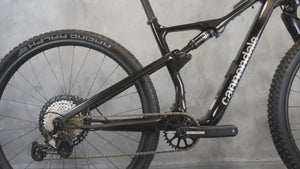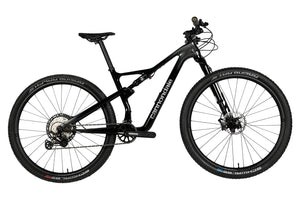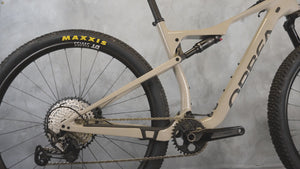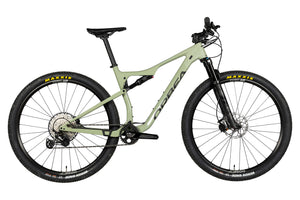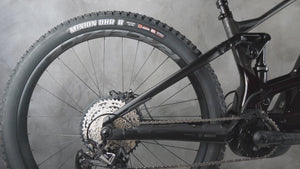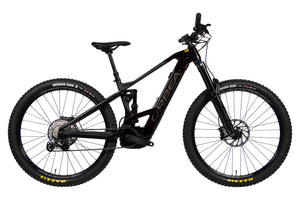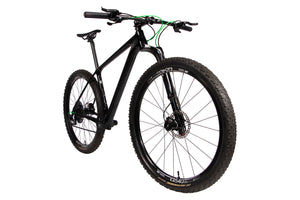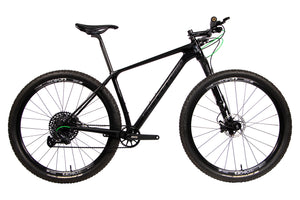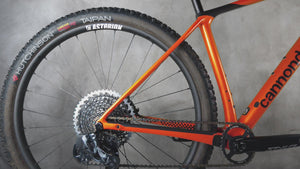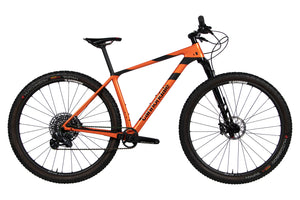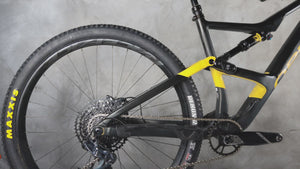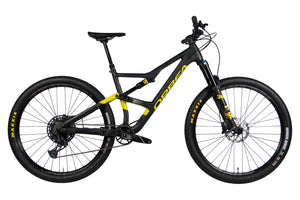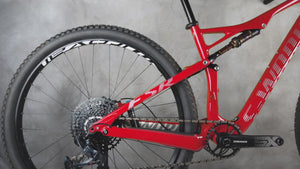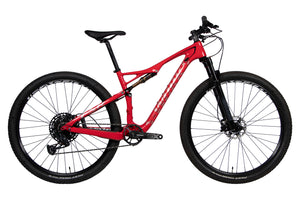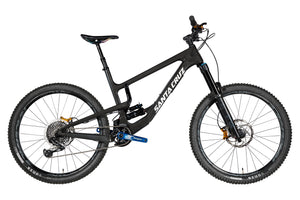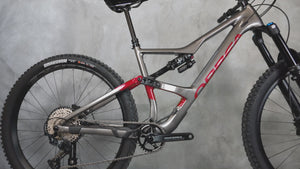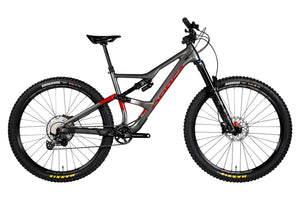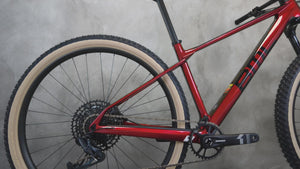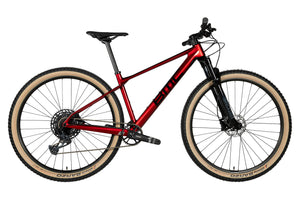Aluminium or carbon wheels: our tips for road, gravel and mountain bikes
In this Article
Published on June 29, 2023
Choosing between carbon and aluminum wheels often comes down to a matter of budget. Because it's no mystery: carbon is expensive! So before you spend a hefty amount to change your aluminum wheelset, it's best to ask yourself whether carbon wheels are right for you. Your riding style, your level, your routes and, of course, the amount of money you're prepared to spend on your passion will determine which material is best suited to your needs. How do you choose between carbon and aluminum wheels? What are the advantages of carbon? For a much lower price, can you expect the same performance from a top-of-the-range aluminum wheel? Whether you're into gravel, mountainbike or road bike, The Cyclist House will help you find out. Take our wheel, we'll guide you! 🚲

Why should you even change your bike wheels?
Let's start there... Before deciding whether or not you need carbon wheels, you may be wondering what the point is in changing your bike wheels? I mean, if they're not damaged or broken, why buy new ones?
The answer is simple: to upgrade without having to change your bike! On a road bike, the original wheels represent around 20% of the total weight. Opting for lighter wheels will enable you to easily upgrade your bike.
On top of the weight, wheels are the most mobile part of a bike, so changing them will considerably alter the behavior of your faithful steed!
In short, a change of wheels can give you the impression of riding a new bike! Now it's a question of choosing the right wheels.
Carbon or aluminum: what's the best choice? It's not that simple!
Carbon wheels: essential for performance?
At first glance, you might think that a carbon wheel necessarily outperforms its aluminum counterpart. In reality, it's a little more complicated than that. As we explained in our article helping you to choose between aluminum and carbon frames, carbon isn't always the best choice.
Admittedly, the weight saving is usually considerable: around 25%! The result: better reactivity during relaunch and a feeling of taking off when you stand up on the pedals... When you're looking to smash times, that helps! ⏱
Investing in a pair of carbon wheels therefore seems essential for those who clearly want to take their performance to the next level.
And what about reliability? Carbon wins the match too. By better absorbing road impacts and vibrations, this material is more resistant and more comfortable for the cyclist. As if that weren't enough, a carbon wheel is also easier to repair.
But beyond all these technical considerations, there's the harsh financial reality. If you don't have a big budget, it's best to consider top-of-the-range aluminum wheels, which can sometimes offer better results than an entry-level carbon wheel.
Aluminium: a material not to be buried too quickly
It's no coincidence that all professional teams choose carbon: the wheels they use are the best available today. But not everyone has the budget of a World Tour team, so sometimes you have to explore other options.
A set of top-of-the-range aluminum wheels is about 4 times cheaper. And in terms of performance, that's usually enough to make obvious gains.
Thanks to advances in technology, it is now possible to produce very lightweight aluminum without any loss of strength. The weight of top-of-the-range aluminum wheels will approach that of entry-level carbon wheels at a much lower cost.
On the other hand, if you're still using pad brakes (read our comparison between disc brakes and rim brakes), aluminum offers better braking quality in adverse weather conditions. A word of warning: if you decide to switch to a carbon wheel with rim brakes, you'll need to change your brake pads. Otherwise, you risk (at best) a nice adrenaline rush on the first bend of your next descent!
Hybrid wheels: a good compromise
To enable amateur cyclists to benefit from the advantages of carbon at a reasonable price, equipment manufacturers have developed mixed wheels, featuring aluminum AND carbon. The aim is to save weight while staying within a moderate budget.
There are two main types of hybrid wheel: one in which the materials are combined and the other in which carbon is added to the aluminum wheel. Explanations... In the case where the two materials together form the wheel, the aluminum rim can be really lightened, as strength is ensured by the carbon to which the spokes are bonded.
In the second case, it's actually an aluminum wheel to which a carbon section has been added to improve aerodynamics. The carbon-fiber part is then drilled to allow the spokes to pass through, attached directly to the aluminum.
Clearly, this is a good compromise for advanced amateurs. They'll be able to save weight and improve performance at a reasonable cost.
🚴♀️ To join the big cycling family without a big budget, think of a Certified Pre-Owned bike for your first purchase 🚴♂️
Aluminum or carbon wheels: which one is right for you?

Before investing in a new set of wheels, it's a good idea to consider your riding style, your training terrain and the budget you're prepared to put on the table. It's obvious that if you compete and ride 15,000 kilometers a year, it will be more worthwhile to equip your bike with carbon wheels than if you ride once a week, or even less. Most of the performance gains will still come from your training and physical condition (your bike isn't the only thing that needs to lose weight if you really want to progress...).
On the other hand, reducing the weight is especially interesting if you often ride hilly or mountainous routes. If your playground is mainly flat, good aluminum wheels will do the trick.
Of course, if you can afford it, carbon will always be a good option, even on the flat. Medium- or high-profile rims will give you better aerodynamics, and inertia on flat sections will give you a few extra km/h.
In short, you can ask yourself the following questions: does my use justify a substantial investment? Will a weight gain be worthwhile in view of my usual routes? What budget am I prepared to devote to my passion?
What other criteria should I take into account when choosing wheels?
Choosing a wheel is not simply a question of carbon or aluminum. There are other criteria to consider when making your choice, such as compatible tire sections, preference for clincher or tubular tires, number and shape of spokes and hub materials.
Which wheels to buy for your discipline?
How to choose road bike wheels?
If you're used to steep hills, you probably wouldn't mind saving a few grams... The ideal road bike for the mountains is obviously equipped with carbon wheels. Choose low-profile wheels of less than 30 mm. High-profile wheels should be avoided because, in addition to adding unnecessary weight, they can be dangerous on descents. Indeed, the force of inertia makes them less maneuverable on a technical track.
For less hilly courses, you can opt for intermediate-profile carbon wheels (between 30 and 50 mm), high-end aluminum wheels or mixed wheels (aluminum with added carbon). Any of these choices will undoubtedly improve your performance on your next outing.
How to choose Mountain Bike wheels?
Mountain biking is a much more sinuous sport. Lighter carbon wheels will be a great help during relaunching and over bumps. But here again, for a lower budget, good aluminum wheels can provide a similar feel. Particularly in mountain biking, carbon won't bring any aero gains. It's all about weight savings.
If you decide to go for carbon wheels, be careful on your first rides. More responsive than aluminum wheels, their reaction can sometimes be surprising in the first few corners. Take your time to tame them!
How to choose your Gravel bike wheels?
The special thing about gravel bikes is that they can be ridden (almost) anywhere... If asphalt roads account for a large proportion of your regular outings, carbon wheels will give you aerodynamic gains on the road, as well as weight savings on twisty sections. On the other hand, if you ride more on forest or gravel roads, aluminum wheels are probably the best value for your money. And what's more, you'll be less bothered by a chip on aluminum rims than on your lovely carbon wheels... 😉
Carbon isn't always the right choice. For occasional cyclists, and those who ride mountainbikes, top quality aluminium wheels will be sufficient to enjoy your rides and improve your performances. On the other hand, carbon wheels are essential for competitive cycling.
Have you changed your wheels recently? Tell us about your first impressions in the comments! 👇












